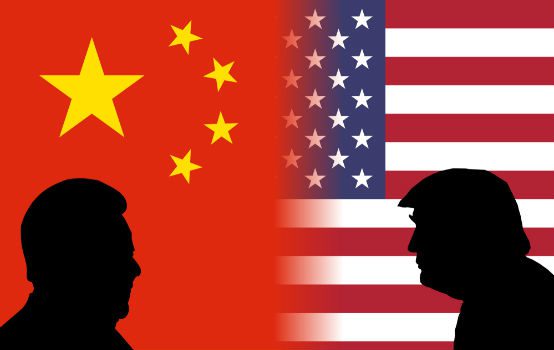America’s Defining Problem In 2021 Isn’t China: It’s America
A new essay casts doubt on the China threat as promulgated by our nation's ruling elite.

Writing in the journal Palladium, Richard Hanania has produced the first must-read essay of 2021. A research fellow at Columbia University’s Saltzman Institute of War and Peace Studies, Hanania is part of an emerging generation of young scholars who reject the increasingly dubious verities of the Cold War and post-Cold War eras. Their arrival comes not a moment too soon.
The title of Hanania’s piece is “China’s Real Threat is to America’s Ruling Ideology.” In this context, ideologyrefers not only to a belief system—liberal democratic capitalism, in our case—but also to a theory of history. Hanania’s real subject is delusion: Washington’s insistence despite abundant evidence to the contrary that the American way of life defines the ultimate destiny of humankind.
Hanania’s essay deserves to be read in its entirety. But a brief synopsis of his argument goes like this: despite the alarmism of official Washington in depicting China as the “national security issue of our time,” the PRC’s emergence as a great power “in no way harms the prosperity or security of most Americans.”
Ordinary Americans have no reason to fear the People’s Republic, Hanania writes. True, the Chinese people enjoy only limited freedom. True also, the Chinese government persecutes and even brutalizes domestic minorities. Yet what should matter to the United States is that Beijing “is not on a mission to fundamentally remake the world.” President Xi Jinping is not engaged in subverting the American Bill of Rights. He has his hands full running China.
Xi’s not-unreasonable strategic purpose is to promote Chinese prosperity while maintaining China’s territorial integrity and insulating itself from threats abroad—a purpose not unlike our own before policymakers in Washington succumbed to fantasies of a world remade in America’s self-image through the assertion of American military might.
In sum, China wants to be very wealthy and very safe—wealthier than any other nation on the planet and so safe as to be immune to outside coercion. And for members of the American policy establishment, therein lies the rub. From Washington’s perspective, “the real problem with Beijing is not that it wants to dominate the world” but that its upward trajectory “might stop the U.S. from doing so in a unipolar manner.”
Post-Cold War expectations of a unipolar international order cultivated by the U.S. policy elite have assumed that the universal embrace of democratic liberalism is an inevitability. This is what being “on the right side of history”—a hallucinatory incantation that pervades contemporary American political speech—signifies.
To the extent that China demonstrates the feasibility of creating a stable, prosperous, and flourishing society while flouting liberal democratic precepts, then claims that history has a single right side become untenable. “If universal democratization is not the ultimate endpoint of history,” Hanania pointedly asks, “how can the American role in the world be justified?”
Andrew Bacevich is president of the Quincy Institute for Responsible Statecraft.



Geen opmerkingen:
Een reactie posten